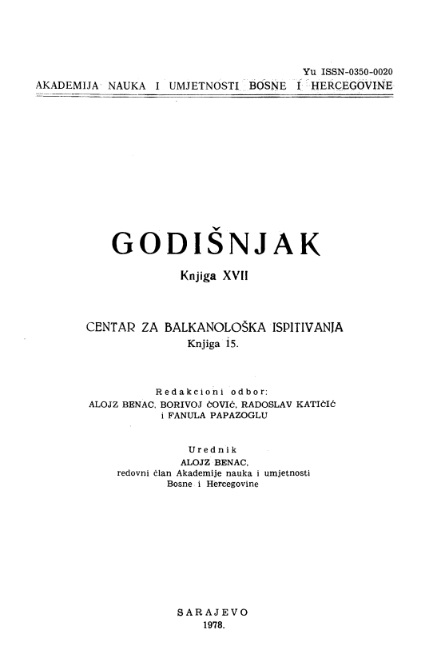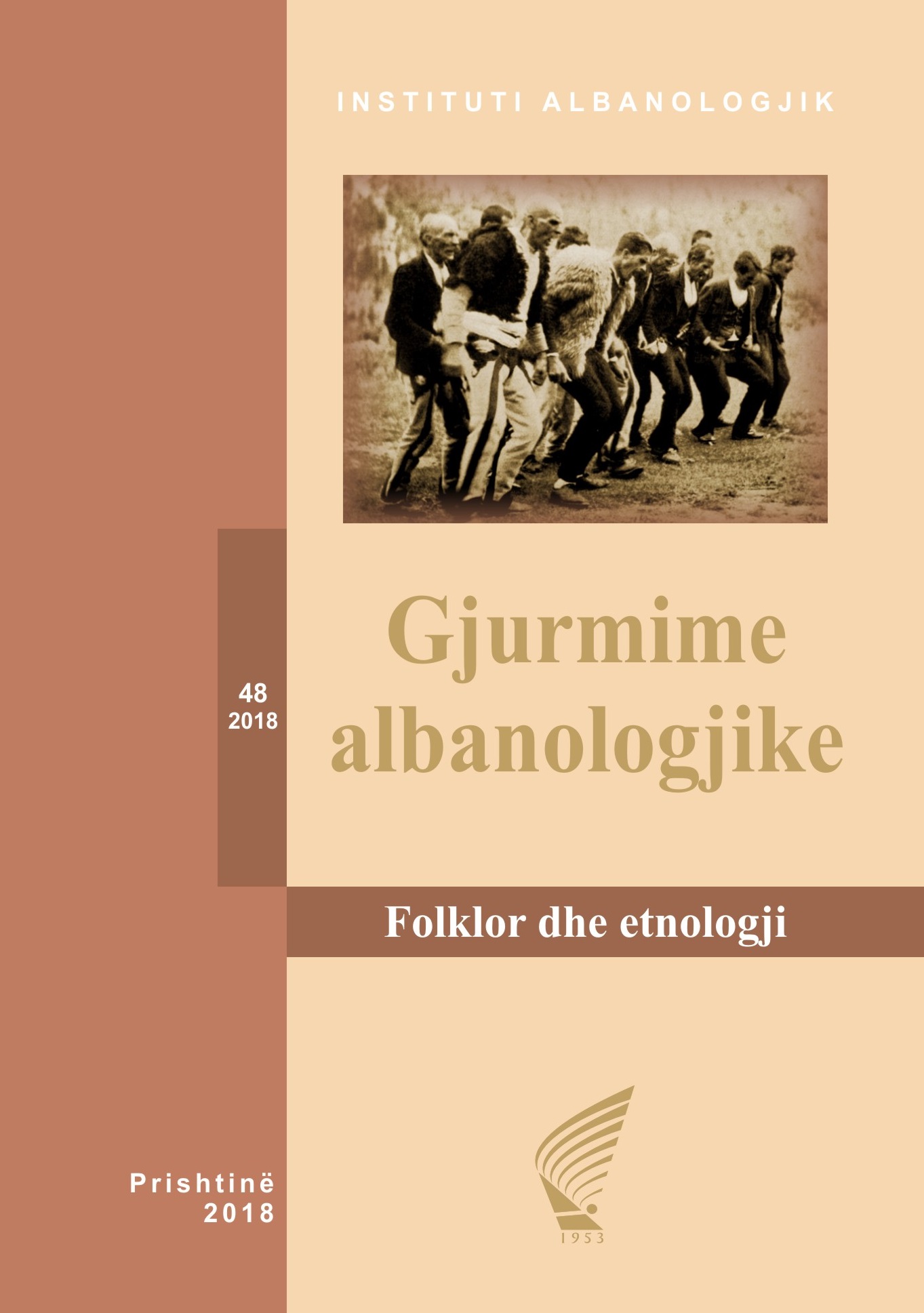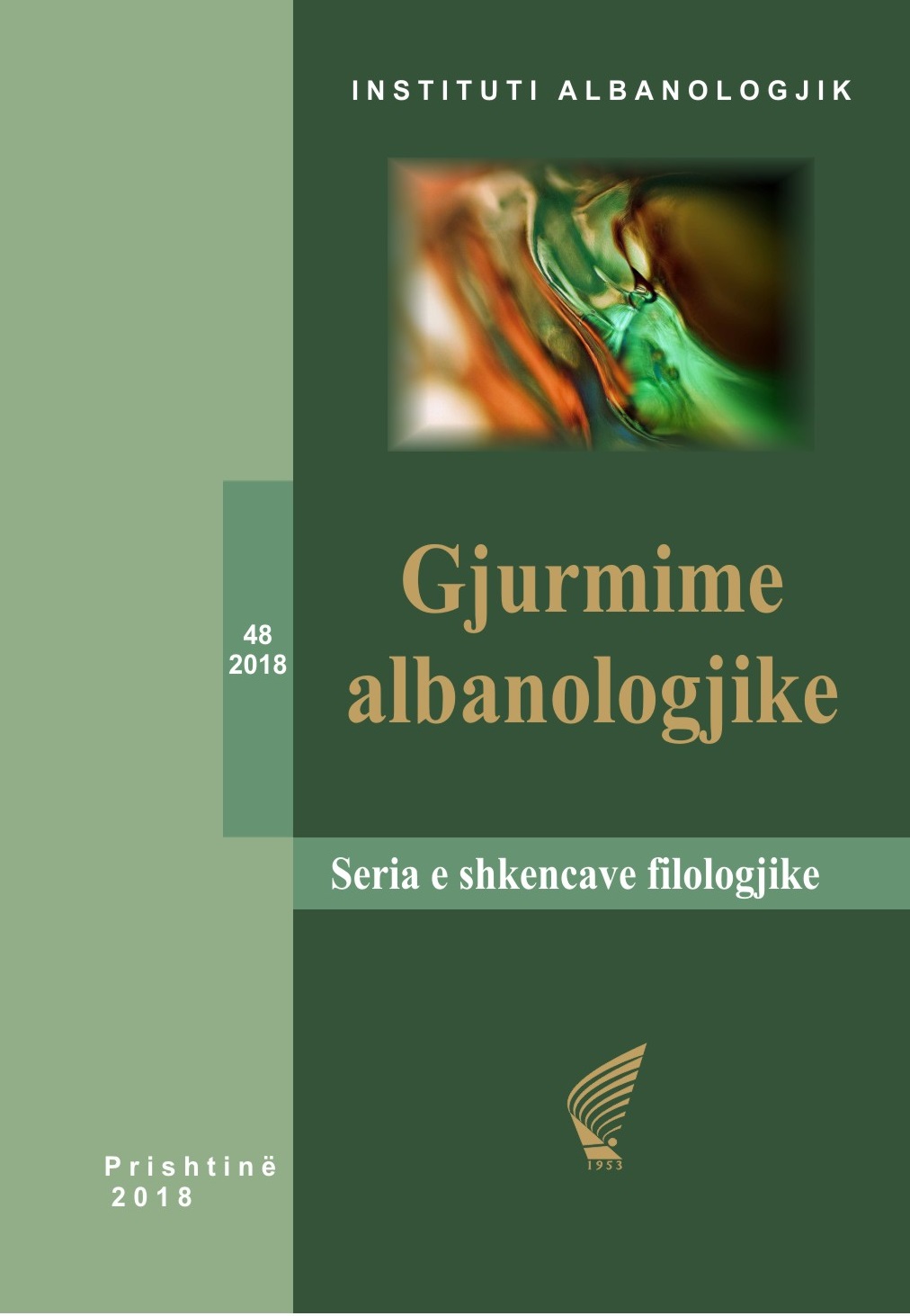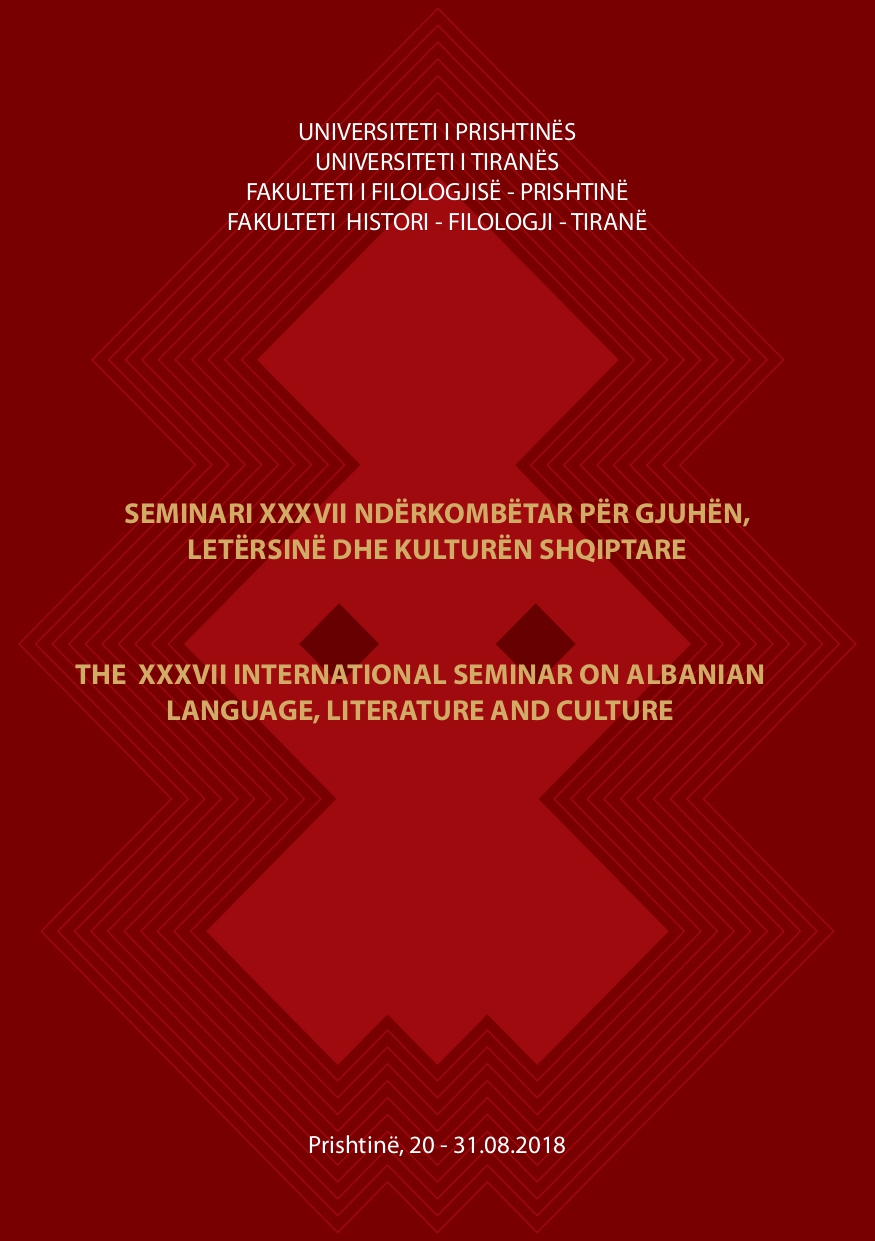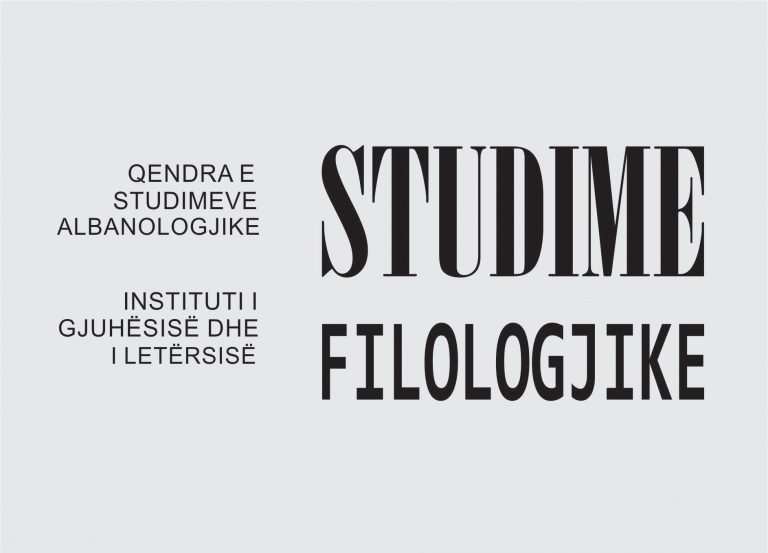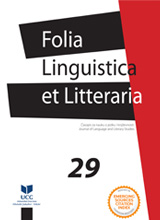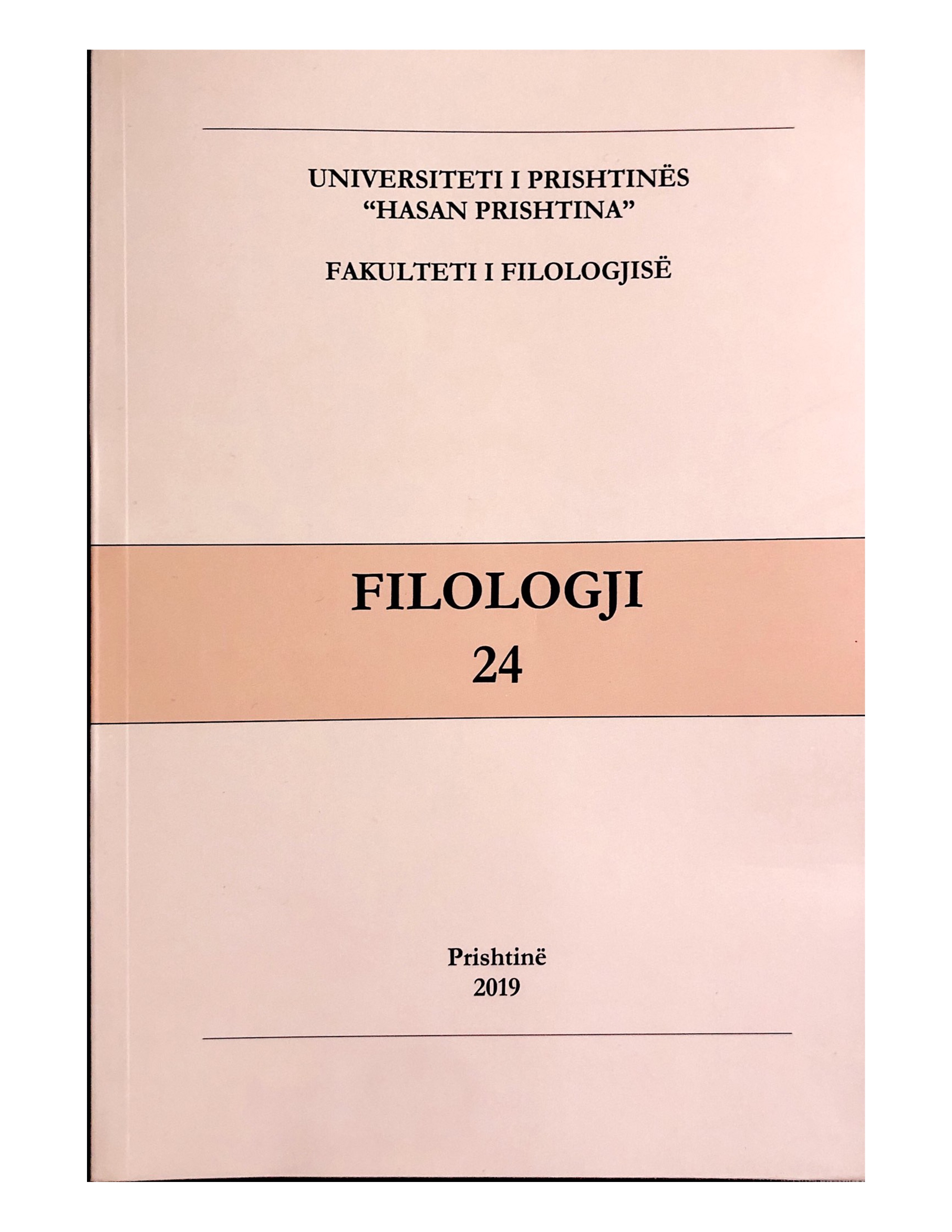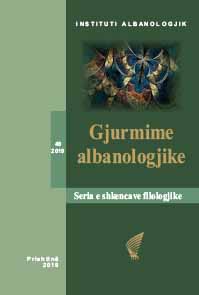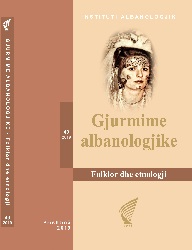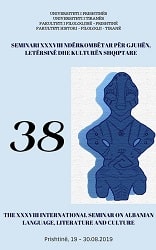Author(s): Edlira Gugu / Language(s): Albanian
Issue: 49/2019
Rexhep Qosja is one of the most well-known representatives of the Albaninan literature. His profile is multi-dimensional as a literary historian and literary critic, author and playwright, essayist and publicist. His profile as a critic and historian is associated with a wide range of study works from the second half of the 1960s to the beginning of the new century, devoted to research in the field of literary studies consistently based on high scientific criteria. In his research work he has devoted much attention to the treatment of issues of theoretical-literary character in his creativity. Studies with such a focus are: Continuities (Continuity) -1972, From typology to periodization -1979, New Albanological notions-1983, Three ways of writing Albanian-2004. They deal with various concepts and problems related to literature in general or even literary methods in particular. The need to treat theoretical problems such as the Continuity work is related to the lack of such studies which should not only clarify notions and concepts, raise and solve certain problems, but also complement and systematize the knowledge framework of such essentials for literature, literary criticism, and the history of literature. Throughout his work Qosja, besides critical and historical literary studies, he has also dealt with issues of theoretical literary character, extending his concepts on them. Discussion and treatment of such issues have often aroused debate in cultural circles and discussions of various kinds. Due to the special nature and complexity of this work of Qosja, we aimed to discover the method of its operation and its characteristics. Kontinuitete, is composed of three parts namely: Literature of tradition, Modern Literature, History and Literary Criticism. In the back summary of the work, he gives an explanation of their publication in the following journals and newspapers: Albanological Traces, New Life, Speech and Renaissance in 1967-1971. Qosja calls all the texts, the object, the nature, and the attitude of the author, all the texts that are united. Their status as a treat and a test enables them to extend the discourse to a theoretical and essayistic level. The tendency to codify theoretical knowledge in terms of method in this work appears in a complex and original way in Qosja. This looks at two aspects: in terms of content and in terms of form. In terms of content it addresses phenomena, cases, issues related to literature, literary criticism, and the history of literature. Their treatment comes through the researcher's tendency to move from critique of interpretive and evaluative character to literature, to writings of systematic characterization of knowledge of the theory and history of literature, referring to the context of Albanian literature. This work of art is part of Qosja's long-term goal of drawing up a history of literature, because without a theoretical system of knowledge, without codification of theoretical knowledge, there can be no history of literature. The most common form is the essay / treatise, the choice of which is not random, but is concerned with conveying the legalities of the literary system through the conception and imagination of the researcher and the tendency to naturally convey to the reader theoretical elements. The dominant approach is typology and comparison, because through them they organize research, systematize and codify the substantive and structural legalities of poetry in Albanian literature with the aim of capturing the reader's attention, but also as an attempt to reconfigure the literary system of Albanian literature. For this reason, the researcher strongly emphasizes scientific rigor, overcomes to a certain extent individual interest and reflexive relation to the issues he addresses and gives more value to synthesizing general knowledge about science for literature. The researcher practices the scientific discourse intertwined with the essayist one, because through them, he approaches the issues he discusses but also the type of texts he constructs. This kind of discourse is contextualized in terms of the need and demand for more in-depth studies of science in literature in Albanian reality. It has referential, appearing, informative, descriptive, interpretive, argumentative, in-and-out literary character and commonly uses certain types of formal terms. It not only directs the reader towards its purpose (to inform about various phenomena related to science of literature) but also influences it, aims at its interaction, to make it active to exploit the fullness of the knowledge it possesses, contextualized in Albanian culture and literature.
More...

